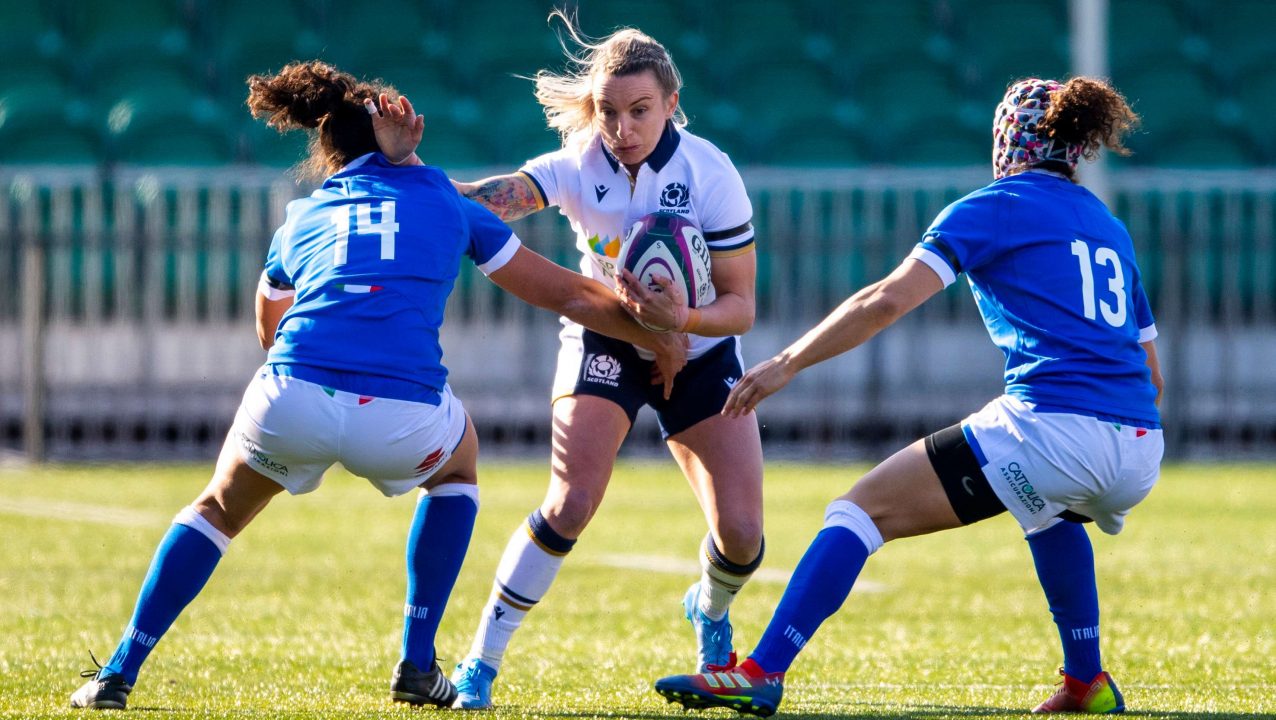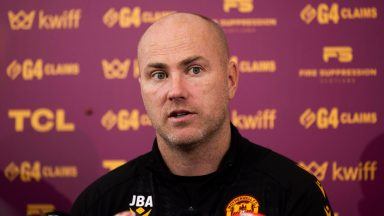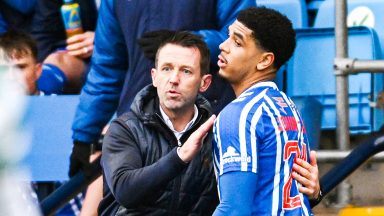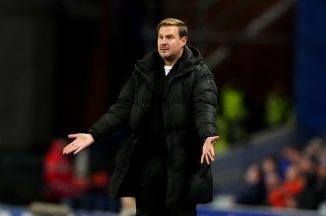Chloe Rollie grew up dreaming of being the next Chris Paterson but the Scotland full-back hopes she is the last fresh-faced girl forced to look to the men’s game for inspiration simply because there are no female role models on show.
The 25-year-old is one of nine professional or semi-professional players in the Dark Blues set-up and now plays for English giants Harlequins having started her career off with Melrose and Murrayfield Wanderers before a stint with French side Lille.
But while she will have television cameras trained on her every move this weekend as the Scots round off their Six Nations campaign against Wales, there was a time not so long ago when Scotland’s women could only dream of such exposure in the mainstream media.
As there was a TV blackout of the female game during her childhood, it was the gun boot of Scotland’s record points scorer Paterson which drew Rollie’s attention.
But thankfully today’s youngsters have a wider choice of stars to identify with as the sport makes strides in bridging the equality gap.
And Rollie hopes that her side – boosted by the efforts of tournament sponsor Guinness, which is bidding to raise the profile of female players – can be the spark which ignites wonderment in Scotland’s next generation.
“When I first started playing for Scotland six years ago there was coverage but nowhere near as good as it is now,” the Jedburgh-raised back told the PA news agency. “You see us on YouTube, Facebook and even TV now – it’s so much better.
“You’re seeing on social media too. The Scotland men’s Instagram page is now posting pictures relating to the women’s squad too, which is amazing.
“Guinness are also helping to promote female players and make sure they have their own Wikipedia profiles and get verification on social media sites to boost that visibility.
“It’s important that female players are known and visible to fans.
“It’s totally different to when I first started playing. This sounds bad but when I was younger I didn’t even know there was a female Scotland team.
“But it’s massively important that the younger generation can see and have access to games so they can be inspired.
“Unfortunately when I was growing up my role models were male-dominated because that’s all we saw on TV.
“Chris Paterson was my main hero because he played in my position. I remember watching him a lot growing up.
“I live in Jedburgh and when I was playing mini rugby aged eight or nine there was only a maximum of three girls in my age group.
“But now when I go along to take training sessions at the club there, there’s so many more girls getting involved and wanting to play.”
Exposure may be on the rise but Scotland’s results are not.
A team who failed to win a single Six Nations game between 2011 and 2016 are on the slump again and will play off for the wooden spoon against the Welsh in Glasgow this weekend having been beaten heavily by England and Italy in this season’s Covid-curtailed competition.
But the women’s game in Scotland remains at an embryonic stage and Rollie stressed it would be wrong to expect too much too soon.
She said: “We’re on the right track. We just need a bit more time to get there.
“It is difficult to play against the likes of England because they’re all full-time athletes. It’s inevitable what’s going to happen because it’s their job.
“I live with two England players and they’re in camp three days a week. Previously we’d be lucky to be in camp two days of a month.
“But we have been increasing our time together. For this tournament, we’ve been in camp for 14 days straight.
“It’s just about time. Results will come.”
:: Guinness is the first Official Partner of the Women’s Six Nations, and is working to increase visibility for both the championship and the players. As part of the brewer’s ‘Never Settle’ initiative, it is working closely with Wikipedia to create profiles for this year’s home nation squads – adding more than 135,000 words to the site.
Follow STV News on WhatsApp
Scan the QR code on your mobile device for all the latest news from around the country



 SNS Group
SNS Group

























